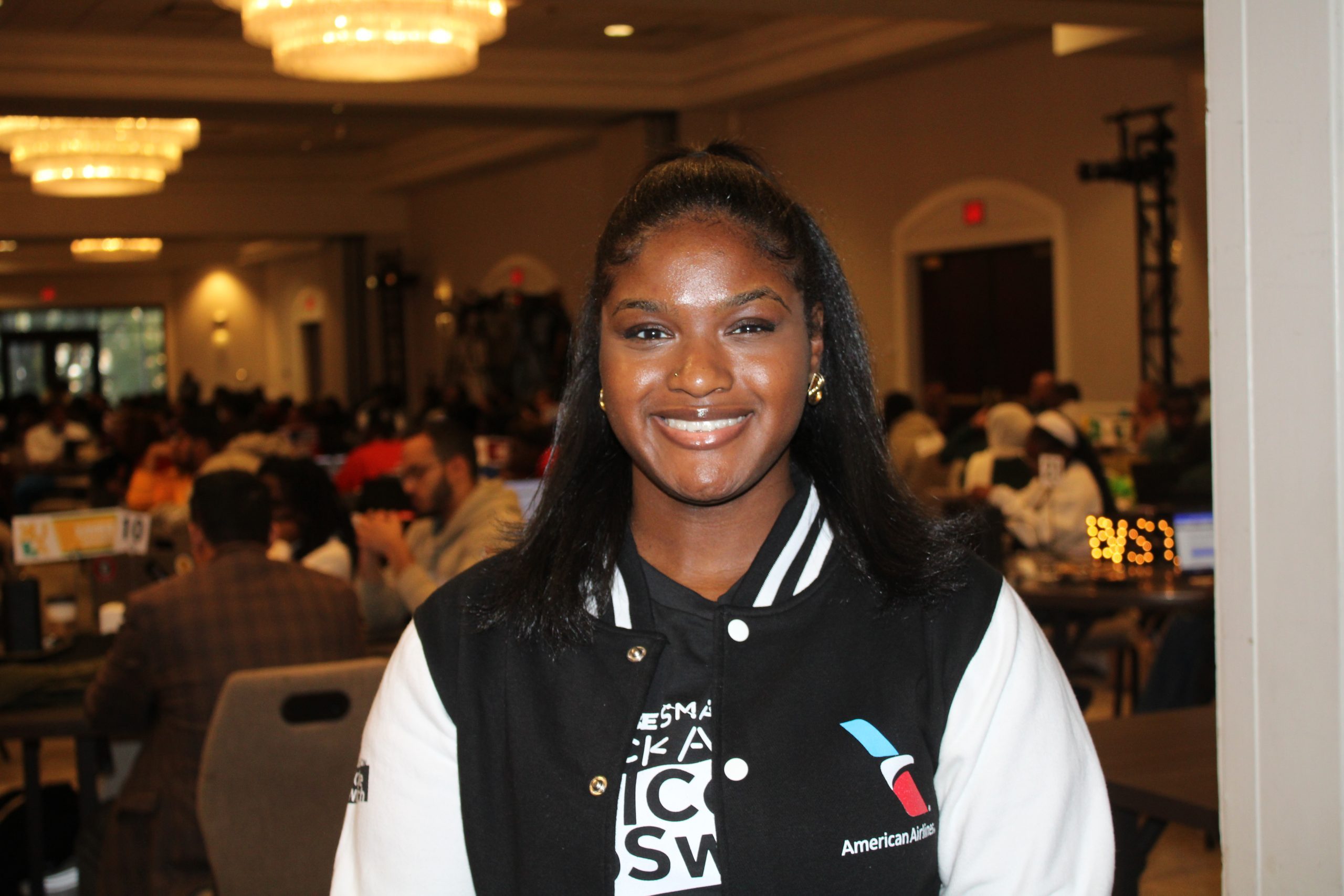American Airlines hosted hundreds of historically Black college and university (HBCU) students in Charlotte recently — for the first time — for a national, coding competition.
The airline hosted more than 200 HBCU students alongside Black-owned multimedia company Black Enterprise at the Charlotte City Center Marriott for the ninth annual Smart Hackathon, a three-day event from Nov. 14-17.
Why it matters: According to a 2023 report from the National Science Foundation, Black Americans represented 9% of the STEM workforce in 2021. In 2011, Black workers made up 7% of the STEM workforce.
Derek Dingle, executive vice president and chief content officer of Black Enterprise, said the goal of the hackathon is to increase students’ exposure to technology careers across various industries, from aviation to banking. Another goal, he said, is to give students a platform to share their technical skills with potential employers.
“Our focus was ensuring that African Americans would be included in the workforce for the 21st century. In order to really engage in that workforce, [you] had to have tech talent. You had to have technical skills. You had to be able to engage with companies that had a focus on technology,” Dingle said.
Each HBCU was able to submit one team comprised of five students for the competition.
HBCUs with too few applicants could join together to form a five-member team with other schools. Each group worked together to create an app that was then judged by a panel including some from Black Enterprise, American Airlines and leading tech experts. Judges looked for social impact, creative problem-solving and overall viability of the app.
While junior and senior computer science and engineering students competed for bragging rights, they also competed for scholarships and prizes. Various prizes were available, such as American Airlines flight miles, drones, headphones and laptops, among others.

Created with the future in mind
Dingle told QCity Metro the event was created nearly a decade ago with the future in consideration.
“All companies are tech companies,” he explained about the need for a technology education among students.
In addition to learning tech skills, the event encouraged students to network with leading businesses like event partners Lowe’s, Fidelity Investment and the city of Charlotte. Additionally, students learned about financial literacy through provided seminars throughout the weekend.
“[Students] get a chance to perform as well as make connections,” Dingle said. “This is a chance for the students to build their skills, make contacts and to advance their professional careers.”
Johnson C. Smith University graduate Tasia Bolling, 26, said attending the hackathon in 2020 provided many opportunities for her career.
Bolling’s role during the coding competition was as a back-end developer, focusing mainly on the app functionality. Although her team did not win, she described them as “very, very ambitious” and was happy to be able to work with them.
“We were all on one page: ‘Let’s get in grind mode, and let’s knock it out the park,’ ” Bolling told QCity Metro about her experience.

Bolling, who studied computer science and information systems, said she learned the value of working under pressure and networking through the competition.
Bolling said the event ultimately helped lead her to a job as a developer for American Airlines.
“We don’t see a lot of ourselves in these spaces,” Bolling said. “This hackathon is more than just coding. It’s about building your community and being able to connect with other students and making sure that [you’re] keep in touch, and really do build your network,” Bolling said.

